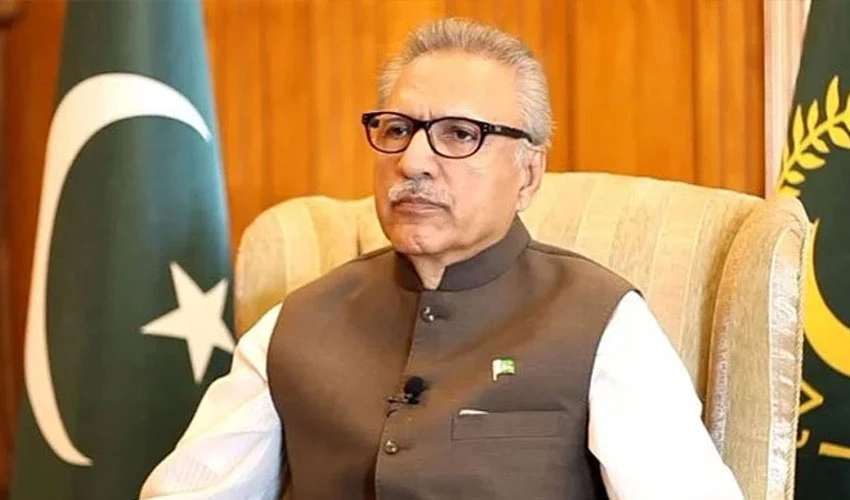President Arif Alvi returns NAB (Amendment) Bill without signature

ISLAMABAD (92 News) - President Arif Alvi returned the National Accountability Bureau (Amendment) Bill without putting his signature on Monday.
In the dissenting note, he wrote that the NAB (Amendment) Bill will give a free-hand to the corrupt people. "Moreover, it will promote corruption in the country," he observed.
President Arif Alvi said that he knows that the bill will becomes a law under Article 75(2) even without signatures.
"The bill will give the corrupt people a message that they cannot be held accountable. Under the bill, people involved in petty crimes will be arrested while the powerful people will have freedom," he added.
On June 9, the joint session of the parliament on had passed the National Accountability (Amendment) Bill, 2022 aimed at stopping the misuse of the law and the victimization of political opponents.
Minister for Law and Justice Azam Nazeer Tarar moved the bill which was passed by the House. The bill was earlier forwarded to the President Dr Arif Alivi for his assent after passage from National Assembly and Senate but was returned to the parliament for reconsideration.
The bill was reconsidered in the joint sitting of Parliament and was passed without any further amendment. The minister said that the objections raised by the President Office had serious legal flaws and he did not expect such things from the office of the President.
He said that bill was not passed in haste and detailed deliberations were made on this legislative proposal. The minister responded in details about the objections raised by the President Office and clarified every single objection.
Under the proposed amendment, a mechanism for establishment of accountability courts, appointment, removal and terms and conditions of judges of said courts have been provided.
In order to curb delays and bring the trial procedures in line with modern practices, a new mechanism for recording of evidence has been devised whereby the evidence of all witnesses and the accused shall be recorded through electronic audio-video means or any other modern devices. Also, if any of the witness is unable to attend the trial in person; his evidence may be recorded through a video link.
There is no authority or forum for seeking bail under the existing regime and the accused has to file constitutional petitions before High Courts for grant of bail, but through an amendment a power to exercise the grant of bail has been given to the trial court.







